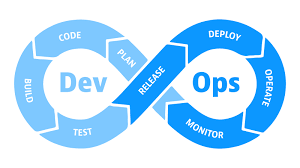#90daysDevOps Challange✨💫
 Suhasi Gupta
Suhasi Gupta
What is DevOps
What is Automation, Scaling, and Infrastructure
Why DevOps is Important, etc
♦️What is DevOps♾️?
DevOps is a combination of software development (dev) and operations (ops). It is defined as a software engineering methodology that aims to integrate the work of development teams and operations teams by facilitating a culture of collaboration and shared responsibility.
♦️What is Automation, Scaling, and Infrastructure?
🔅Automation: Automation is the use of technology to perform tasks with reduced human assistance. Automation helps you accelerate processes and scale environments, as well as build continuous integration, continuous delivery, and continuous deployment (CI/CD) workflows.
📈Scaling: scaling in DevOps is the process of expanding and shrinking your systems and practices as you need them. Scaling in DevOps requires automation technologies and a forward-thinking DevOps mindset.
🏢Infrastructure: DevOps infrastructure or Infrastructure Automation under DevOps refers to a concept that revolves around the idea of managing infrastructure with the help of code. This is done with the help of certain tools or programs which can help to carry out the tasks automatically! Some of the leading IAC tools are listed below.
Ansible
Terraform
SaltStack
CloudFormation
Azure Resource Manager
Spectral Ops
♦️Why DevOps is Important
1.Shorter development cycles that encourage innovation
The fact that both departments (development and operations) come together is an advantage when it comes to releasing new apps, products… It is generally known that the more innovative companies are, the higher their chances of outrunning the competition. Which is essential to increase significantly competitiveness.
2. More collaboration, better communication
Thanks to the union between both teams, productivity improves a lot. The DevOps culture is based on achieving the best performance in such a union, instead of worrying about individual objectives.
As a result of both departments being fused, the process becomes more fluid since everyone is oriented towards a common goal.
To ensure that your DevOps team reaches its best performance, it is necessary to create a transparent culture in which responsibilities are shared and immediate feedback is guaranteed.
3.Reduced deployment failures and faster time to recover
Most failures during development occur due to programming defects. Having a DevOps team will allow for more releases in shorter time spawns. This way, it is easier and more likely to find possible defects in the code process.
4.Efficient: Improved resource management
Increased efficiency helps speed up development and reduce coding defects and problems.
Subscribe to my newsletter
Read articles from Suhasi Gupta directly inside your inbox. Subscribe to the newsletter, and don't miss out.
Written by
